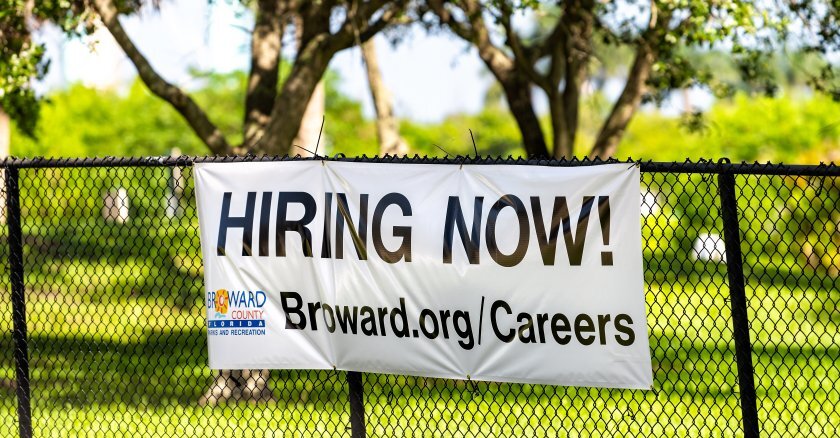Historically, graduates with an accounting degree or a CPA certificate could always count on getting a job in the public sector as a secure, albeit unglamorous, career path. Meanwhile, accounting firms were always happy to fill their off-season job calendars with state and local government audits.
So what’s changed in the supply chain for governmental accountants? Has life in the private sector become so attractive that all students gravitate to for-profit enterprises and high-powered corporate auditing at the expense of the public-sector workforce? Is it just about pay, as state and local governments fall farther behind in the competition for talent? Or is something else going on?
The answer is “all of the above, plus more.” Clearly the career track for CPAs in the corporate world offers more glamorous and lucrative opportunities, and the sophistication and competitive nature of business finance often presents more challenges to maximize profitability that in turn yield performance opportunities for ambitious youngsters. Likewise, some of this particular labor shortage undoubtedly stems from a general societal devaluation of the merits of government service: It’s the same headwind that prospective teachers, cops and public health nurses experience.
At the same time, the big national CPA firms are increasingly disinclined to vie for lower-profit governmental audit engagements. They too are leveraging workers’ productivity with audit tools and especially consulting work that are seldom prevalent in governmental finance, where public procurement practices tend to splinter the higher-margin consulting gigs away from more-mundane audit work. Financial advisory firms that specialize in municipal debt finance have gobbled up the lion’s share of the consulting gigs, and economies of scale in audits are hard to exploit when auditing municipal governments with smaller populations. Smaller jurisdictions are therefore often engaging regional or local accounting firms to perform their independent audits.
Meanwhile, while governmental fund accounting may be simple in its basic concepts and structure — in the business schools, a single class or two in fund accounting for governments and nonprofits is all that most departments offer at the undergrad level — it has become more complex on the regulatory front. Federal single-audit requirements are not a topic that can be mastered in a one-day in-house training seminar, and the ever-increasing number and nuances of governmental accounting standards now require a higher level of staff specialization than prevailed decades ago. So there is a skills shortage as well as an economic disincentive.
As with most supply chain problems, the solution is more complicated than just turning on a switch. Pay adjustments will likely be necessary, and governments accustomed to low-bid procurement of their annual audit work will likely need to face up to a new reality and pay the piper for the talent and timeliness they need. But foremost, the states and localities need to build out their training facilities and work to attract talent away from the private sector and other occupational fields. That’s where the professional associations can play a huge role, and they need support from their members, their dues structures and employers’ training budgets to make this happen.
Setting the Sights
For starters, the governmental financial organizations need to work with their state-level affiliates to interact more aggressively with collegiate business schools to present in-classroom role models of governmental accountants and finance managers. This needs to start at the sophomore and junior years, when students are still trying to figure out what really interests them and only vaguely thinking about what they plan to do with the rest of their life. By the time students receive their degrees, their sights are set elsewhere.
Some collegians — especially those accumulating college debt and those with young families — may find the security of public service and a steady paycheck with good fringe benefits to be attractive, but money alone won’t draw students into governmental accounting if they think they can immediately earn more in private employment with more upside opportunities. Many students will presume they’ll become boxed forever into a bureaucratic cubicle, unless they are shown otherwise.
What’s been lost in that mindset is that local governments in particular can offer more exposure to big numbers and policy decisions early in one’s professional career than many accountants in the private sector encounter. That point needs to be conveyed at job fairs and at special crash courses in governmental accounting. That’s where role modeling can play a bigger role.
Furthermore, public finance directors should nudge their employers and lobby their HR departments to begin offering college debt relief stipends to onboard governmental accountants who sign on and stick with them. Think of it as the municipal equivalent of the GI Bill, a targeted fringe benefit for workers in specific fields where staff shortages prevail. Just as police and fire departments offer specialist pay for detectives and paramedics, and teachers get higher pay for postgraduate degrees, a spiff for CPAs sends a message beyond its cash value without dragging public employers into across-the-board salary escalation.
Bring on the Boot Camps
The state associations of finance officers and CPAs can play a key role in working with their state universities and the national affiliates. Using the Government Finance Officers Association (GFOA)’s “accounting academy” training program as a curriculum blueprint, they should offer free tuition to college students willing to spend a few days attending an intensive boot camp in governmental accounting and a similar class in governmental audits designed by the American Institute of Certified Public Accountants (AICPA), for which they can be awarded a credential of some sort; students with no or limited work experience are always looking for ways to dress up their résumés, and this is a great way to lure them into the profession.
In preparation for these events, a “train the trainers” academy could be organized by the GFOA to assure quality control and coach established local professionals who know the subject but may need pointers on teaching and motivating collegians. A remote attendance option could also be designed to enable students to participate from home or campus housing, if travel and lodging are prohibitive.
This training could also be made available to state and local government staff workers at cost and possibly on weekends to minimize disruption to job functions. At the state level, the controllers’ and finance departments’ staffs should work with their national associations to sponsor similar programs, especially in-service training modules. The 19 state controllers and their counterparts elsewhere should be popping up frequently in college classrooms to inspire students and provide insights to budding professionals. CPA-credentialed city and county controllers and CFOs can and should do the same. It’s payback time and a legacy opportunity, unique in most lifetimes.
The Associations’ Vital Role
To their credit, GFOA’s leadership already takes these problems very seriously, and recently devoted several annual conference sessions to both the issue and its outreach efforts. What’s needed now is stronger interfaces and involvement at the grass-roots level by state and regional groups and active partnerships with the AICPA and its local affiliates. For starters, the GFOA’s latest annual conference session on talent scarcity should be replicated and adapted by affiliated state and regional associations.
An overlooked option in many cases is the nationwide army of account clerks, historically mostly women, who lack collegiate training and credentials but who are entering data and running the books daily. Building them a career ladder that includes accounting fundamentals, with a focus on the unique features and nuances of governmental accounting, is a taller and longer-term challenge for the professional associations that should be addressed. Artificial intelligence is a potential tool that senior GFOA staff is exploring, to leverage such talent as a worksite tool.
With private-sector companies building online curriculum programs for professionals, a joint effort with the professional associations would provide another cost-effective and accessible source of talent. Chegg and its top competitors, including Course Hero, Brainly, Quizlet and Studocu, all come to mind as potential players in this space. Prominent online-degree colleges can also benefit from professional course content that makes it a no-brainer for them to offer classes designed by professionals and prominent accounting professors.
The national associations can underwrite and provide the technical training materials, but it will take focused and pragmatic local efforts by their affiliated regional and state groups to facilitate the opportunities that are key to a successful job market intervention and rebuilding a sufficient talent pool. The problem won’t be solved by waiting for somebody else to handle it.
Governing's opinion columns reflect the views of their authors and not necessarily those of Governing's editors or management.
Related Content














